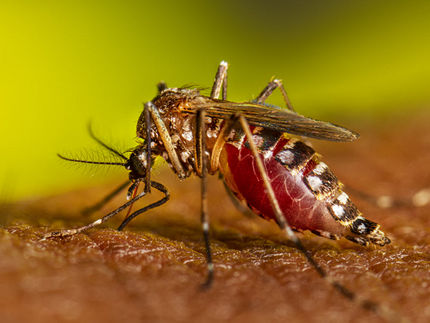Common bacterium stops mosquitoes from transmitting dengue virus
Advertisement
Strains of a bacterium commonly found in fruit flies can prevent the Aedes aegypti mosquito from transmitting the virus that causes dengue fever, researchers have found. Their discovery could lead to a more effective way to control dengue worldwide.
North Carolina State University mathematical biologist Dr. Alun Lloyd is part of the Eliminate Dengue program, a research consortium that includes scientists from Australia and the United States. The program aims to stop the Aedes aegypti mosquito from transmitting dengue virus between humans by introducing a naturally occurring bacterium called Wolbachia – which is not harmful to humans – into the existing wild mosquito population.
"When mosquitoes carrying Wolbachia are introduced into the environment, they mate with wild mosquitoes, and pass Wolbachia to their offspring until all Aedes aegypti mosquitoes have Wolbachia. If mosquitoes don't become infected with dengue, they cannot transmit the virus to people," Lloyd explains.
The researchers infected female mosquitos with two different strains of Wolbachia bacteria – known as wMel and wMelPop-CLA – and did experiments to test the ability of the strains to spread throughout mosquito populations in controlled conditions. They found that both strains seemed to block the transmission of dengue virus, and that the wMel strain was able to infect almost the entire test population in just a few generations.
Lloyd contributed mathematical models that helped the researchers interpret the results of their experiments, which pointed to the wMel strain as the bacterium with the greater potential for suppressing the spread of dengue virus.
"This is a simple, non-chemical, non-harmful way to reduce the threat of dengue to humans," Lloyd says. "It could have a transformative effect on the health of literally millions of people worldwide."
Original publication
"A non-virulent Wolbachia infection blocks dengue transmission and rapidly invades Aedes aegypti populations"; Aug. 25, 2011 in Nature



























































